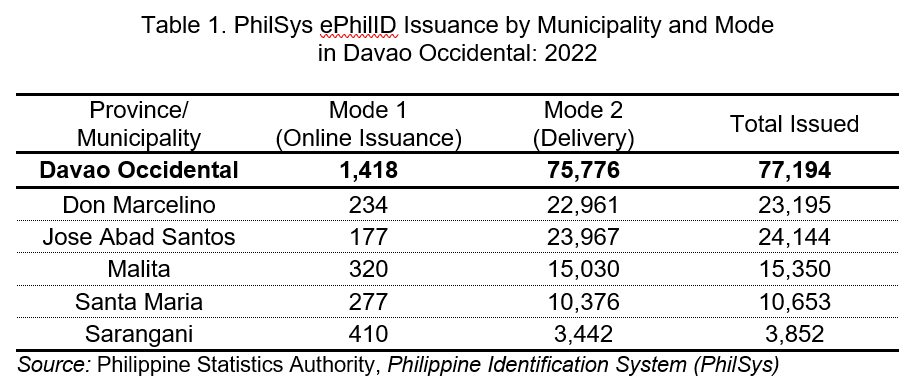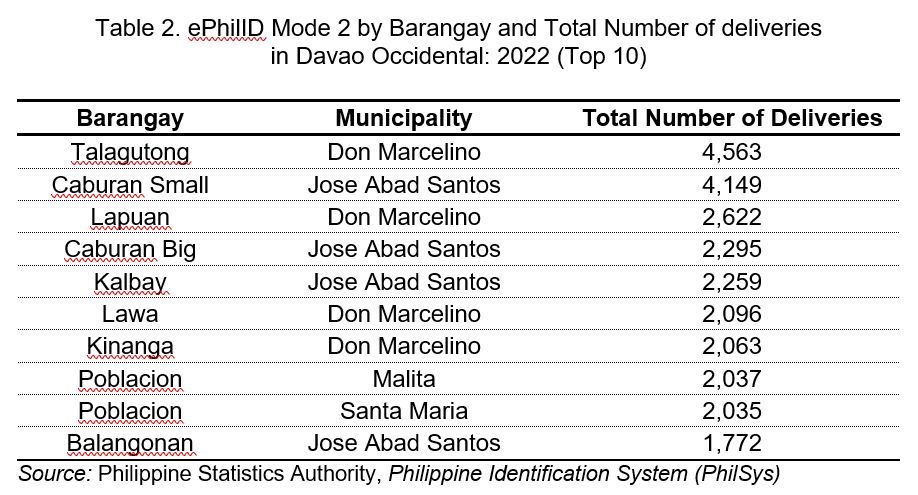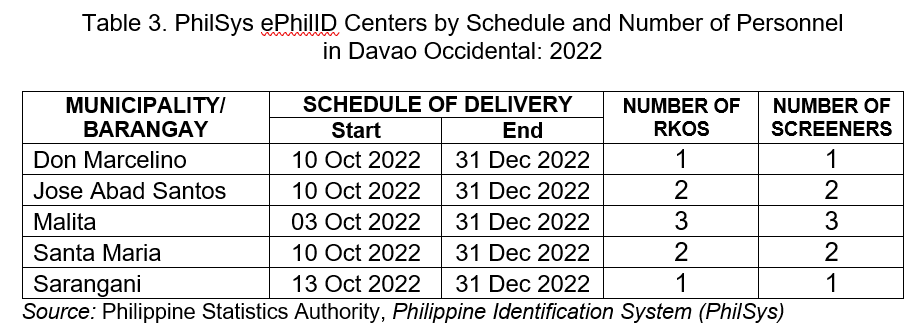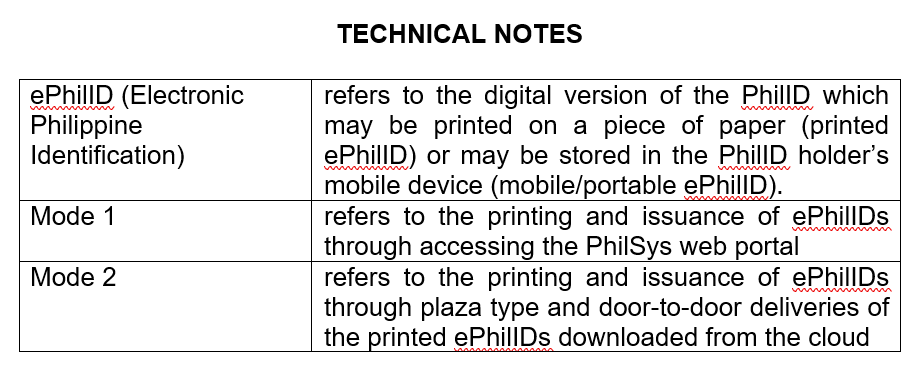PSA launched the ePhilID - a digital version of the PhilID to the public
In October 3, 2022, Philippine Statistics Authority (PSA) Philippine Identification System (PhilSys) launched the Electronic Philippine Identification (ePhilID), the digital version of the Philippine Identification (PhilID) card.
The PhilSys digital ID is a proactive strategy of the PSA to allow registrants to immediately enjoy the benefits of being PhilSys-registered, such as better access to more financial and social protection services pursuant to Section 7 (c) (1) of the Republic Act No. 11055 (RA 11055), otherwise known as the Philippine Identification System Act of 2018.
Registrants who have successfully registered to PhilSys or those issues with PhilSys Number (PSN) may avail of the ePhilID in various formats. They can claim their ePhilID subject to its availability, by setting an online appointment, and presenting their transaction slip to their selected PhilSys Registration Centers on the reserved date.
The printed ePhilID shows the person’s PhilSys Card Number (PCN) and basic demographic information such as last name, given name, middle name and suffix (if available), sex, blood type, marital status (if declared), date and place of birth, front-facing photograph, address, generation date, and a quick response (QR) code.
The digital ePhilID can also be downloaded in portable document format (PDF) upon availability of the PSN on the PhilSys web portal.
PSA Davao Occidental successfully issues 77 thousand ePhilIDs in 2022
As of December 31, 2022, PhilSys Davao Occidental successfully issued a total of 77,194 ePhilIDs to the province of which was composed of 1,418 online issuances for Mode 1 and 75,776 deliveries for Mode 2.
Deliveries for ePhilID have been conducted in batches which depended on the available uploaded ePhilIDs for the province.
Jose Abad Santos highest in number of total ePhilID issuance
For the total number of ePhilID issued for both Mode 1 and Mode 2, Jose Abad Santos leads with 24,144, followed by Don Marcelino with 23,195, Malita with 15,35, Santa Maria with 10,653 and Sarangani with 3,852.
In terms of Mode 1, Sarangani had the highest number with 410 issued ePhilIDs followed by Malita with 32, Santa Maria with 277, Don Marcelino with 234 and Jose Abad Santos with 177.
On the other hand, the highest total issued ePhilID for Mode 2 goes to Jose Abad Santos with 23, 967 followed by Don Marcelino with 22,961, Malita with 15,030, Santa Maria with 10,376 and Sarangani with 3,442. (Table 1)

Talagutong of Municipality of Don Marcelino leads the top 10 barangays by total number of ePhilID deliveries
Out of all the 105 barangays of the province, Barangay Talagutong of Don Marcelino leads the total number of ePhilID deliveries with 4,563. This was then followed by Caburan Small (Jose Abad Santos) with 4,149, Lapuan (Don Marcelino) with 2,622, Caburan Big (Jose Abad Santos) with 2,295, Kalbay (Jose Abad Santos) with 2,259, Lawa (Don Marcelino) with 2,096, Kinanga (Don Marcelino) with 2,063, Poblacion (Malita) with 2,037, Poblacion (Santa Maria) with 2,035 and Balangonan (Jose Abad Santos) with 1,772. (Table 2)

PSA Davao Occidental hires 18 personnel for PhilSys ePhilID team
PSA Davao Occidental hired a total of 18 PhilSys personnel for the ePhilID team. This team was composed of 9 Registration Kit Operators (RKO) and 9 Screeners.
PhilSys ePhilID services started with Mode 1 in different centers per municipality that had a good internet connectivity. (Table 3)
Later on, they have conducted Mode 2 through plaza type and door-to-door deliveries on the first week of November 2022.


Republic Act No. 11055, or the Philippine Identification System Act, signed into law by President Rodrigo Roa Duterte on August 6, 2018, aims to establish a single national identification system for all citizens and resident aliens of the Republic of the Philippines. The valid proof of identity provided by the PhilSys shall be a means of simplifying public and private transactions, and shall be a social and economic platform that promotes seamless social service delivery and strengthens financial inclusion for both public and private services. As a foundational digital ID system, the PhilSys will transform how services are delivered in the Philippines, and accelerate our transition into a digital economy, including to enable presence-less, paperless, and cashless transactions.

